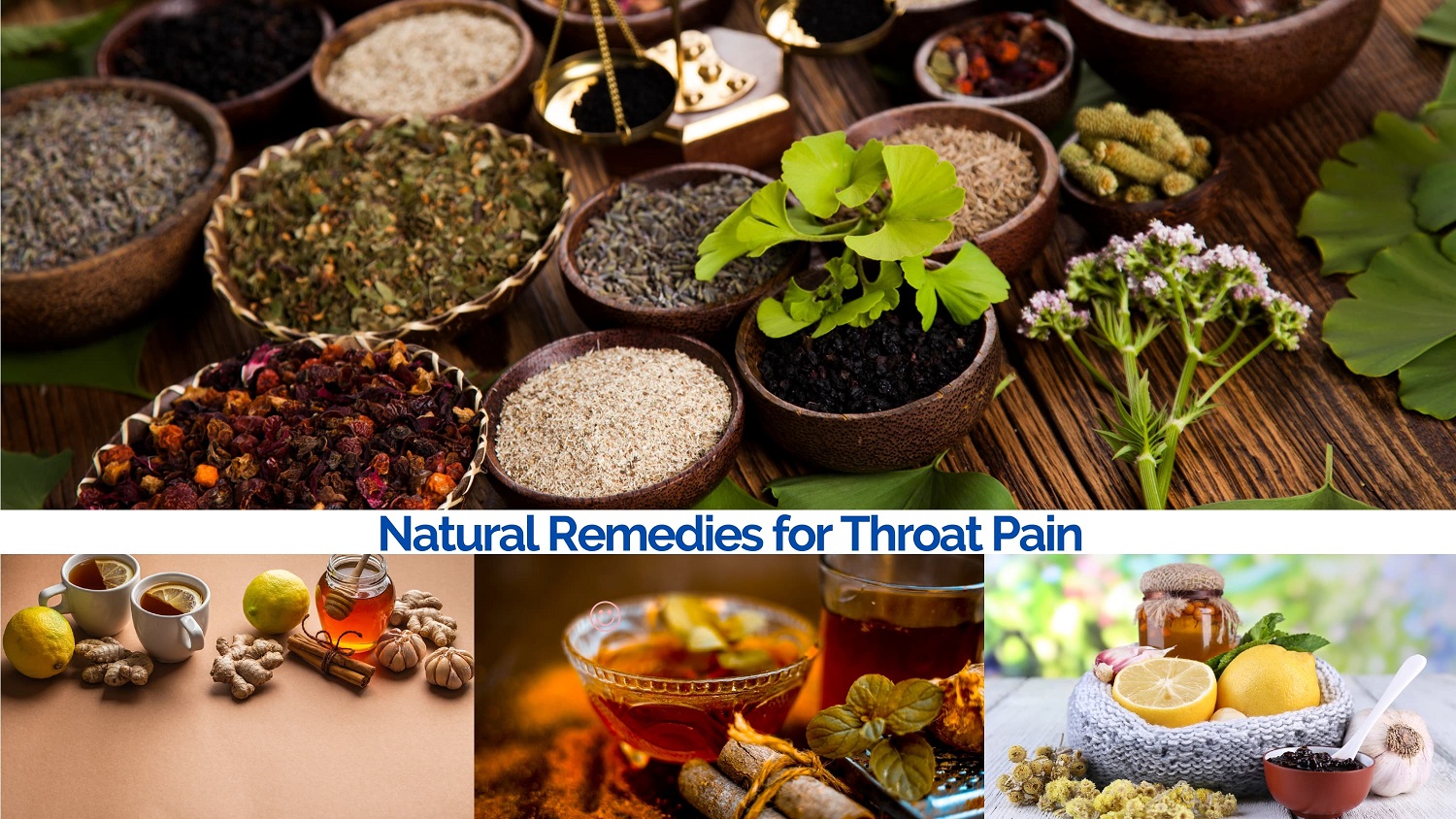If your throat feels scratchy, it might be a sign that you’re catching a cold. Changes in the weather can often lead to throat irritation. Consuming cold things like ice cream or cold drinks can also cause throat irritation, and pollution can pose a risk of allergic infections. Throat pain and discomfort can be symptoms of various illnesses, including serious ones like fever, earaches, or even mouth and throat cancer. It’s important to notice these signs and deal with them promptly to avoid more problems. Did you know that you can treat throat discomfort at home?
In today’s environment, factors like smog, pollution, smoking, acid reflux, viral infections like flu or cold, and bacterial infections like strep can all contribute to throat irritation. If left untreated, it can escalate to conditions like cold and cough, and even throat infections. Ignoring mild irritation can lead to issues like burning sensations and difficulty swallowing during meals.
Symptoms of Throat Pain:
- Itching and irritation in the throat.
- Increased pain while swallowing and speaking.
- Difficulty swallowing food.
- Dry throat.
- Swelling and pain in the neck glands.
- Swelling in the tonsils.
- Hoarseness.
- Harshness in the voice.
- Weak voice.
- Pain in the lower part of the ear.
- Fever due to pain.
- Frequent sneezing.
- Coughing
- Difficulty breathing.
- Possibility of throat pain due to imbalanced diet.
- Throat pain due to imbalances in the body’s energy.
These simple remedies can help alleviate throat discomfort naturally.
Causes of Throat Pain Simplified
Throat pain can be caused by various factors and understanding them is crucial for relief. Let’s break it down:
Allergies: Dust, pollution, and allergies can lead to throat pain.
Dry Environment: Dry air can cause dryness and irritation in the throat, leading to discomfort.
Excessive Talking or Yelling: Speaking loudly or too much can strain the throat and cause pain.
Gastroesophageal Reflux: A digestive disorder can contribute to throat pain.
Tumors: In rare cases, growths in the throat, tongue, or neck can be a cause.
Now, here are simple, natural remedies to ease throat irritation or throat ache remedies:
Saltwater Gargle:
Mix salt in warm water. Gargle twice a day to reduce phlegm and soothe swelling. It could also aid in minimizing the presence of bacteria in the throat.
Herbal Tea:

Turmeric has anti-inflammatory properties.
Include turmeric in your diet or have turmeric-infused tea for quick relief.
Black Pepper and Honey:
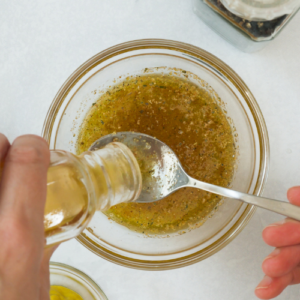
Mix black pepper powder and honey.
Consume this mixture a few times a day for relief.
Licorice Root:
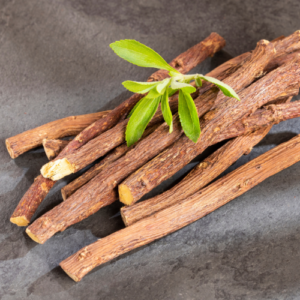
Chewing a small piece can help alleviate throat pain.
Ginger Tea:
Boil ginger in water.
Drink the ginger tea to soothe the throat.
Holy Basil Decoction for Throat Irritation:
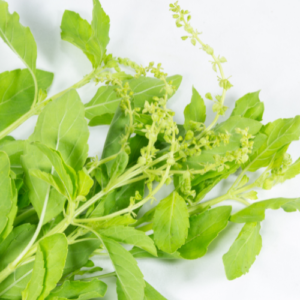
To make a helpful holy basil decoction for throat irritation, boil water in a pot. In a blender, grind cloves, black pepper, and cinnamon. Add this mixture and some basil leaves to the boiling water. Let it simmer.
Turmeric for Sore Throat:
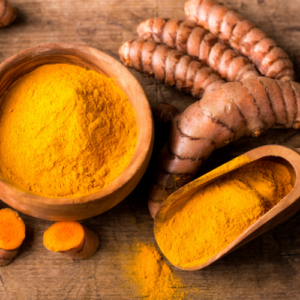
Mix a spoon of turmeric in a glass of warm water. Drink this slowly on an empty stomach in the morning. Turmeric’s medicinal properties help reduce swelling and ease throat pain.
Relief from Throat Pain with Pomegranate:
You can easily find pomegranates at any local store. Consuming pomegranate can be beneficial for throat pain. Drinking pomegranate juice may help alleviate throat pain and reduce swelling.
The Magic of Garlic:
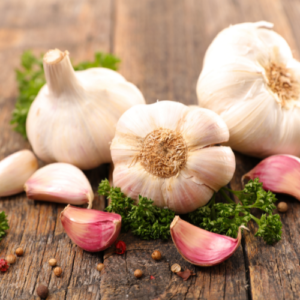
Garlic isn’t just for flavor – it’s a natural antibacterial powerhouse! A compound called allicin, found in garlic is like a superhero against viral infections, if you’re looking to steer clear of those pesky upper respiratory infections, a daily garlic supplement might be your ally. Don’t just stop at cooking with garlic; consider munching on a raw garlic clove. It might be a bit intense, but the antimicrobial benefits are worth it. Just remember to brush your teeth afterward to keep those pearly whites safe from enzymes and freshen up your breath.
Fenugreek:
Fenugreek, an herb with various forms, offers versatile options. You can consume fenugreek seeds, apply fenugreek oil on the skin, or indulge in fenugreek tea. Fenugreek tea, in particular, is a popular solution for soothing sore throats. It’s known to alleviate pain, such as menstrual cramps, reduce bacteria causing irritation or inflammation, and act as an effective antifungal.
Apple Cider Vinegar for Throat Pain:
In a cup of warm water, mix a spoon of apple cider vinegar, a spoon of lemon juice, and honey. Drink it slowly. This mix can quickly reduce throat swelling and pain.
Diet for throat ache remedies:
When you have throat pain, your diet matters:
- Eat nutritious food.
- Consume liquids to keep your throat from drying. Drinking plenty of water prevents dehydration.
- Warm a glass of water, add a spoon of salt, and gargle. It helps with throat pain.
Lifestyle for Sore Throat:
To manage throat ache, consider these lifestyle changes:
- Get plenty of rest.
- Speak less.
- If your nose is congested along with throat pain, use a pillow under your neck while sleeping to ease breathing.
- Maintain cleanliness around you, wash your hands before eating, and keep your mouth clean. Avoid excessive tongue cleaning, as it may cause discomfort.
Avoid These in Sore Throat:
When dealing with a sore throat, be cautious about the following:
Avoid Sharing Utensils:
Don’t share utensils or glasses without washing them first.
Avoid Yelling:
Shouting can worsen throat swelling and discomfort.
Use Clean Utensils:
Always use clean utensils and glasses.
Be Mindful of Citrus Fruits:
Citrus fruits and other acidic foods can worsen throat pain.
Limit Vinegar and Salt-based Foods:
Avoid foods made with vinegar and excessive salt, as they can worsen throat conditions.
Limit Acidic Vegetables:
People with throat pain should avoid acidic vegetables like tomatoes.
Be Cautious with Spices:
Spices like chili, sauces, and nutmeg can aggravate throat pain.
Be Careful with Mouth Fresheners:
Mouth fresheners or mouthwashes with alcohol can initiate discomfort in an infected throat.
Watch Alcohol Intake:
Alcohol can dehydrate the body, which is not ideal for those with throat pain.
Consider Quitting Smoking:
If you smoke, consider quitting temporarily as it may worsen throat conditions.
Avoid Sharp Edges:
Foods with sharp edges, like biscuits and nuts, should be avoided.
Steer Clear of Cold Beverages:
Cold drinks and ice cream can exacerbate throat pain.
Speak Softly:
Try not to speak loudly, as it can strain the throat.
Minimize Junk Food:
Cut down on junk food such as pizza and burgers.
Limit Caffeine and Alcohol:
Reduce the intake of caffeine and alcohol, as they may contribute to dehydration and worsen throat issues.
When to Contact a Doctor.
Generally, a sore throat from a viral infection gets better on its own in a few days. However, consult a doctor if:
- The pain is severe.
- Swallowing solid or liquid foods becomes challenging.
- You experience throat pain during pregnancy.
- Breathing becomes difficult.
- Excessive drooling.
- Signs of dehydration appear.
- Ear pain accompanies throat pain.
- Difficulty sleeping due to pain.
- Throat bleeding after spitting.
Frequently Asked Questions About Sore Throats
If you have more questions about dealing with sore throats, explore these common queries.
1. What Causes a Sore Throat?
Sore throats can be triggered by various factors, including viral infections like colds, flu, or COVID-19, bacterial infections such as strep throat, allergies to pollen or pet dander, environmental irritants like smoke or pollution, and even conditions like GERD or throat tumors. Viral infections are reported as the most common cause by the CDC.
2. How Long Does a Sore Throat Last?
The duration of a sore throat depends on its cause. Many resolves within a week, but if it persists or worsens, seeking medical advice after a week is crucial.
3. How Can I Prevent an Impending Sore Throat?
While preventing a sore throat isn’t always possible, rest, limiting exposure to irritants, reducing stress, and staying hydrated with warm liquids can be helpful. Using a humidifier to add moisture to dry air may also offer relief.
4. How Can I Prevent a Sore Throat?
To prevent a sore throat, avoid close contact with contagious individuals, wash hands frequently, and consider steering clear of spicy or acidic foods that may irritate the throat. Avoiding exposure to chemicals or smoke is also recommended.
5. What Lifestyle Changes Help Manage throat ache?
Managing throat pain involves getting enough rest, speaking less, using a pillow under the neck if congested, maintaining cleanliness, and avoiding excessive tongue cleaning.
6. What Should I Avoid When Dealing with a Sore Throat?
Be cautious about sharing utensils without washing, yelling, using clean utensils and glasses, consuming citrus fruits or acidic foods, and limiting intake of vinegar, salt-based foods, acidic vegetables, and certain spices. Avoiding alcohol, quitting smoking temporarily, and steering clear of sharp-edged or cold foods can also be beneficial.
7. When Should I Consult a Doctor?
While sore throats from viral infections often improve on their own, consult a doctor if the pain is severe, swallowing becomes challenging, there’s difficulty breathing, signs of dehydration appear, or if other concerning symptoms like ear pain, excessive drooling, or throat bleeding occur.

